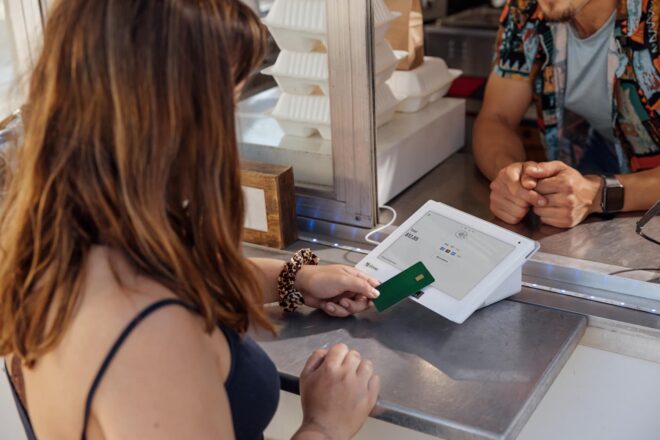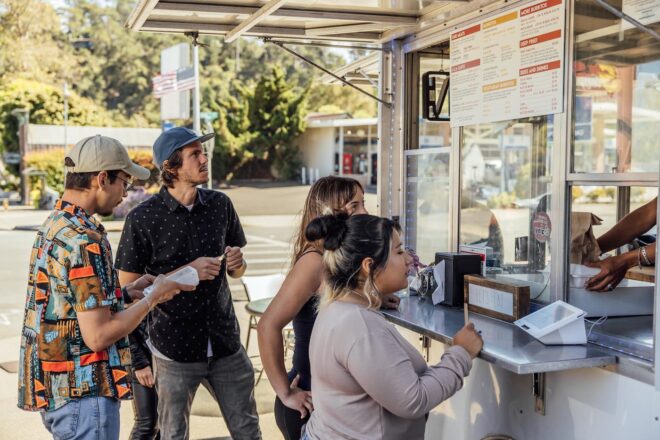Business resources for female small business owners
Editorial Team
9 min read
The number of women-owned businesses in the United States has skyrocketed over the years. Today, American Express estimates that 42% of businesses in the US are women-owned, and 50% of those women-owned businesses are minority-owned.
Women-owned businesses support the economy in myriad ways. Case in point, more than 9 million people are employed by women-owned businesses, and women-owned businesses generated nearly $1.8 trillion in sales and other revenue in 2018.
Despite these important gains and contributions, however, women entrepreneurs still struggle to access the financial assistance, mentorship, grants, and other support enjoyed by their male counterparts. In 2020, the average loan size for women founders was 33% lower than for male founders.
To support all women small- and medium-sized business (SMB) owners, we’re sharing this list of grants, loans, venture capital investors, and networking and training opportunities. These resources are slowly but surely helping level the playing field for ambitious entrepreneurs.we’re sharing this list of resources for women small- and medium-sized business (SMB) owners. These grants, loans, and networking and training opportunities are slowly but surely helping level the playing field for ambitious entrepreneurs.
Grants, contests, and crowdfunding
There are many places to search for grants: Grants.gov, for instance, or the National Association for the Self-Employed (NASE). Those databases are full of funding opportunities—however, you may be competing for grants with male entrepreneurs. GrantsforWomen.org is a comprehensive database of grant opportunities exclusively for women. You can search for scholarship opportunities and other grants; note that many listings are for non-business purposes.
Many other grants and contests are geared specifically to women. Since 2014, the Girlboss Foundation has awarded grants of $15,000 twice a year to women entrepreneurs. Grants go to business owners working in design, fashion, music, and the arts.
Clover’s Back2Business initiative awards substantial cash prizes to merchants–especially women- and BIPOC-owned businesses–to help them thrive. In the wake of a global pandemic and an economic recession, Back2Business awards have helped stabilize small businesses by supporting payroll, rent and lease payments, technology, and premise redesigns toward a safer environment. Clover’s parent company, Fiserv, has pledged $10 million in small business grant support alongside complimentary membership.
The Amber Grant Foundation offers a lot of opportunities to women-owned businesses. Each month, the Foundation gives away at least $10,000; plus, they award a year-end grant of $25,000 to one of the 12 monthly grant winners. The application is relatively straightforward and requires a $15 fee.
Next, the Cartier Women’s Initiative Awards provides grants to women-owned businesses that are less than three years old. In this contest, judges are looking for business ideas that are creative and financially sustainable and have some form of social impact. Fourteen finalists get $30,000, and seven winners get $100,000.
The FedEx Small Business Grant is a contest that is open to everyone but highly encourages women SMB owners to apply. Since its inception, almost every first-prize winner of this grant has been a woman. Each year, 10 business owners receive funding from FedEx, with prizes ranging from $15,000–$50,000, plus some amount of services from FedEx.
The Visa Everywhere Initiative is a global competition for startups and fintech companies that specifically deal with payment and commerce innovation. Prizes range from $10,000–$50,000, and a Women’s Global Edition grants two winners with $100,000 each. The Women’s Global Edition brings a social impact element into the mix.
According to the SoGal Foundation, Black women entrepreneurs receive less than .5% of venture capital funding. Their Black Founder Startup Grant seeks to address that issue, having awarded several $5,000 or $10,000 grants to Black women or nonbinary entrepreneurs. Applications are accepted on a rolling basis.
Through the U.S. government’s Small Business Innovation Research (SBIR) and Small Business Technology Transfer (SBTT) programs, 11 federal agencies offer grants to small businesses that contribute to federal research and development. While not specifically for women, these grants target small businesses with fewer than 500 employees.
In addition to grants and contests, iFundWomen is a crowdfunding platform dedicated to raising money for women entrepreneurs.
Loans
The Small Business Administration (SBA) is a great go-to for finding resources that connect women-owned businesses with loans. Funding for women-owned businesses typically falls under their 8(a) Business Development program, which helps small, disadvantaged businesses compete for federal contracts. Try the SBA’s online Lender Match tool to see what else you may qualify for.
The SBA also sponsors nearly 100 Women’s Business Centers around the country. These centers help women entrepreneurs access capital, and some, like the California Capital Financial Development Corporation, lend money directly to women-owned businesses. The SBA also offers assistance for applying for federal contracts through its Women-Owned Small Businesses (WOSB) Federal Contracting program.
Accion is a nonprofit organization that makes loans to small businesses. Loans can reach $1 million, and Accion has specific programs targeting women-owned and minority-owned businesses. They don’t look only at credit scores, and they make an effort to loan to businesses who’ve had trouble getting traditional bank loans.
Union Bank has loan programs for both minority-owned and women-owned businesses. Borrowers must have been in business for at least two years and have annual sales of less than $20 million.
The Tory Burch Foundation Capital Program helps women entrepreneurs who’ve been in business for at least two years access small business loans. The Foundation screens potential borrowers and connects them to Community Lenders, also known as Community Development Financial Institutions (CDFIs), to formally apply for loans.
Venture Capital Investors and Mentorship
VC funding can be competitive and hard to find for female entrepreneurs for many reasons. Nevertheless, there are a number of venture capital firms and angel investing networks that focus on women-owned businesses.
37 Angels, for example, invests $50,000 to $200,000 in selected companies. SoGal Ventures invests in innovative companies with significant relevance to women, mainly in health and beauty but also in children’s toys, study materials, sexual health, and beyond. Plum Alley invests in advanced technology and health care companies.
Belle Capital invests in companies that have at least one woman founder or C-level exec, and/or are willing to recruit top women talent to the C-suite and board of directors. Other venture capital firms worth exploring include MergeLane, Backstage Capital, BBG Ventures, Female Founders Fund, Golden Seeds, Chloe Capital, and Portfolia.
Mentorship and Training
Mentorship matters. In one survey, 84% of CEOs said having a mentor helped them avoid costly mistakes. But it can be difficult for women to access mentorship with the same ease as men. If you’re seeking a mentor, consider plugging into the SBA Women Business Centers, the Association of Women’s Business Centers, or one of the many other networks, organizations, and programs below.
Networking communities can provide a comfortable space for getting to know your fellow women entrepreneurs. The Female Founders Alliance, Lean In Network, Ladies Get Paid, and Fairygodboss facilitate group spaces for information sharing and mutual support. The BOSS Network unites women of color, especially Black women.
For one-on-one coaching sessions, check out Entrepreneur’s Ask an Expert and Career Contessa. Artist entrepreneurs and creative small business owners should consider meeting with an Artist Career Consultant through Springboard for the Arts.
The EY Entrepreneurial Winning Women program provides networking and knowledge to women business owners who are founding CEOs and majority owners of any privately held company in the United States or Canada. The company must be 10 years old or less and have reported at least $2 million in sales during each of the past two fiscal years.
The Ladies Who Launch online community offers mentorship, educational resources, funding, networking, and community for women entrepreneurs, hosting experiential events and connecting digitally.
Training and other educational resources are also available to women entrepreneurs. DreamBuilder, a program by the SBA, helps women entrepreneurs write their first-ever business plan and can be a great starting point if you’re not sure how to get your idea off the ground. Women Who Startup is a network that offers training and workshop opportunities. The Women’s Venture Fund is a nonprofit offering entrepreneurial training, technical assistance, and advisory services. National Association of Women Business Owners (NAWBO) offers an Institute for Entrepreneurial Development. Even podcasts, such as Side Hustle Pro and The Writers’ Co-op, can provide invaluable skills and advice.
If you’re further along in your journey, finding funding and structuring your business may not be your first priorities. There are plenty of other resources for business owners at later stages of growth, including Women Impacting Public Policy (WIPP), a nonpartisan national public policy organization; the Center for Women & Enterprise (CWE), a large regional nonprofit dedicated to helping women-run companies in Massachusetts, New Hampshire, Rhode Island and Vermont; and Moms As Entrepreneurs, which aims to support the “mom entrepreneur community” by providing training and financial education.
Staffing
Staffing is one of the most important pieces of a growing business–and what’s better than women hiring women? Depending on your field, you might find perfect candidates via Hire Tech Ladies, Women Who Code, POC in Audio (which features many women and nonbinary people), or ACES Editors for Hire (which also features many women). The Mom Project helps women with children remain active in the workforce by connecting moms and potential employers.
There are many, many resources out there to help women get their business off the ground. Keep applying to loans and grants, networking with like-minded women, and taking advantage of every resource out there!
Clover is dedicated to providing women entrepreneurs with the tools to scale their business. Talk to a Clover Business Consultant today to learn how our POS systems and and business management solutions can help merchants protect what’s important to them and run their operation easier.
TALK TO AN EXPERTOther articles you may like
- How should you fund your small business? Here’s how to choose.
- How to get funding and support for minority-owned businesses
- Small business funding for Black women entrpreneurs
This material is provided for informational purposes only and should not be construed as legal, financial, or tax advice. Readers should contact their attorneys, financial advisors, or tax professionals to obtain advice with respect to any particular matter.
Related Posts
What is a card reader and how does it work?
10 food truck equipment essentials every food truck needs for opening day
Popular Topics
Stay in touch
Sign up and learn more about Clover.
Thank you for your subscription!
More posts about starting a small business
eBook





